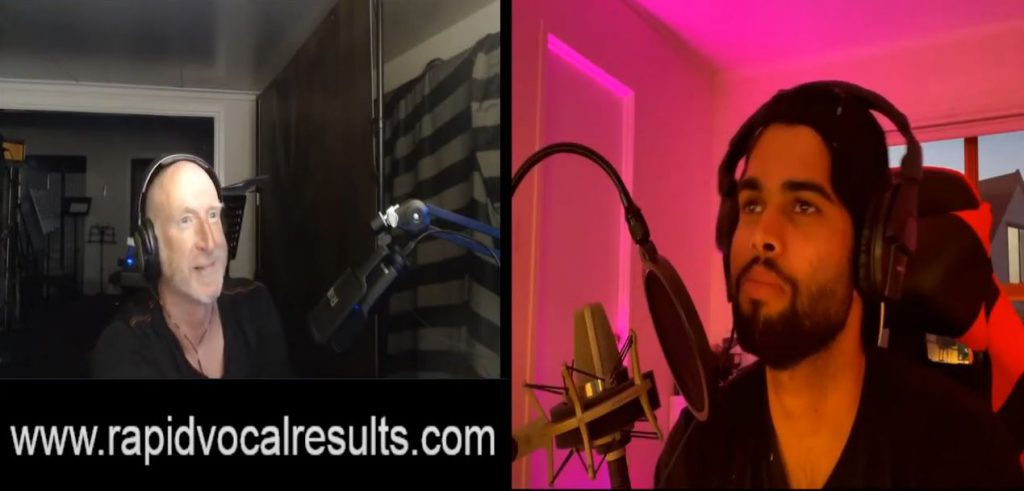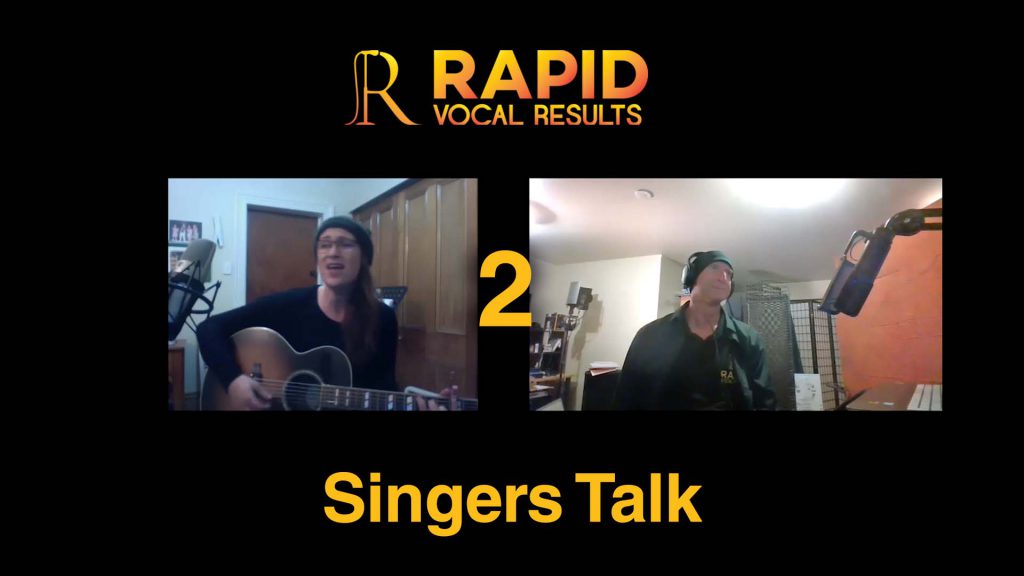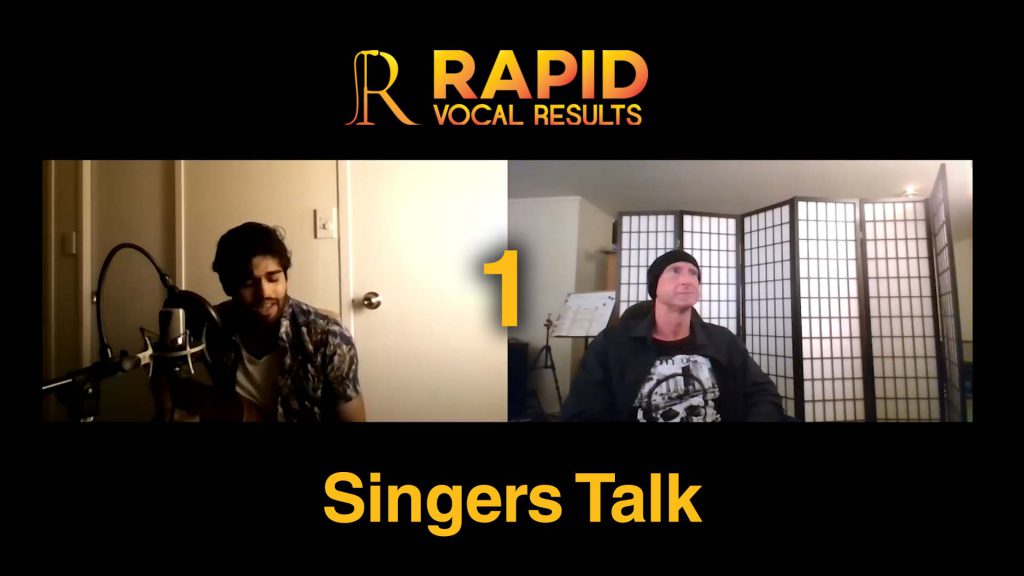Singers Talk – Tips to make your songs more memorable with The AJ Sound
This time, the shoe is on the other foot. Watch AJ from The AJ Sound interview Paule from RVR about his top 8 songwriting tips.
In sad trend in the majority of popular music these days is to put a large focus around the music and the song progression and to basically just write throwaway, disposable lyrics. Some forms of music lend themselves more easily to very basic, straightforward lyric writing styles.
If you’re primarily interested in traditional blues music, it’s usually written in first person: “I went down to the store and bought myself a beer, I drank in the hot sun and start to feel weird”. The origin of country and western music was guilty of using the same first person perspective. “I got me a pick up truck and I’m diving down the road. I got my arm out the window, with no particular place to go.” Dance music is another genre that follows this format. “Oh baby, you’re so hot. I want you, I need you, I want what you’ve got.”
That’s fine if the lyrical style suits the genre, and there’s nothing wrong with a generic, first person lyric-writing style. It lends itself well to the way that music is made these days, which is generally very quick and takes a cookie cutter approach.
The problem with this approach is that we as artists are in danger of encouraging music to become very disposable and one-dimensional. I believe sadly that for a lot of the popular music that is made today, and the way that music is produced, we are losing our way. The music is manufactured more like a consumer product with a short shelf life. It’s quantity over quality and if we continue that trend, the vast majority of music is going to be produced with the intention of being disposable.
This topic is something that I’m incredibly passionate about and I’m not preaching to anyone here more than I am to myself.
As a songwriter, I can’t live with the idea of writing a one-dimensional, disposable lyric. Why even pick up your guitar, your piano or even your electronic devices if you don’t have something original to say to the world?
I know a lot of artists out there put their heart and soul into their music and they agonise over every word and every line. In short, they care deeply about what they want to say. I want to talk to those people.
If you’re interested in writing disposable music, more power to you, but this post is not for you. If you’re an artist out there that yearns for being able to tell a better story and develop the skills to write a more memorable, substantial song, then this post is for you.
First of all, we need to understand the elements that a memorable song lyric is comprised of. There will always be a few minor exceptions to these rules, but for the majority of songwriters, if you write a song about how you like to wear a red shirt with white stripes and you like green shoes, then you’re only going to appeal to a niche demographic that can relate to wearing a red shirt with white stripes and might be considering wearing green shoes! This is not the approach that the world’s most iconic songwriters have in mind when they write their songs.
Rule number 1: Always start with a universally understood subject or emotion.
Losing a job, breaking up with a partner, falling in love. These are all topics that most people can relate to.
Rule number 2: Write your song to support your overall message.
Be mindful of giving any supporting cast character in your story a bigger voice than required. Granting supporting characters a voice can easily disrupt the flow of your story and your song lyric. You need to maintain a clear picture of what the song is about.
Rule number 3: Tell a clear, progressive, flowing story.
Just imagine jumping into your car with no clear destination in mind. You could easily wind up driving in circles and getting your passengers lost.
Rule number 4: Make a provocative statement up front.
All of the greatest songwriters; people like The Beatles, Elton John, Sam Cook, Marvin Gaye, Chris Kristofferson, Johnny Cash, Billy Joel, Joni Mitchell, Stevie Wonder, Cat Stevens, Chrissy Hynde, Tom Petty and Prince always start with a universally understood subject or emotion, then they open with a provocative statement that grabs the audience’s attention from the very first line. Apologies if I haven’t mentioned your favourite songwriter, it doesn’t mean that they aren’t great! Many of my favourites haven’t been listed here either.
One way of doing this is to imagine that you’re a prosecuting attorney and you’re making your first opening statement to the jury. There’s no time for waffle. You want to make the most powerful opening statement that you can that sets the scene for your story.
Rule number 5: Get to know your literary writing devices.
Like a painter that has a palette of 32 colours, until you know how to use the devices available to you, you’re really just painting in black and white.
The best songwriters tell a strong story by making use of numerous literary writing devices. Things like alliteration (taking the same vowel or consonant sound and repeating it through a line), e.g. Let It Be by The Beatles: “Whisper words of wisdom”, or Big Yellow Taxi by Joni Mitchell: “They paved paradise and put up a parking lot”.
Other examples include Bad Blood by Taylor Swift: “And baby, now we’ve got bad blood”, Drops of Jupiter by Train: “Can you imagine no first dance, freeze-dried romance five hour conversation”. Alliteration is a popular device that is used to create word patterns in song lyrics that really catch your ear and attract you more strongly to the rhythmic elements of the vocal melody.
Rule number 6: Imagine your song is a short movie.
You should think of yourself as a script writer that is writing a short movie. Most popular songs have three, to a maximum of four “scenes”. There’s a real skill in being able to tell a story within the parameters of three and a half minutes (average length of a pop song), or perhaps five and a half for a rock song.
This idea of scripting out and “mind mapping” a song, and getting organised to do the song justice is the thing that requires the most amount of discipline and is probably the biggest turn-off to singers and songwriters that prefer to fly by the seat of their pants and simply make it all up as they go along.
I know first hand just how they feel, because this was the one habit that I had developed as a songwriter that I found the hardest and most difficult to change. The idea of mind mapping and scripting out the ideas for a song felt like too much hard work, but with regular practice and persistence this habit has now paid off for me ten times over. When I write a song now, my song lyrics are stronger, they tell a better story, the writing style is more provocative and appealing. In short, I’m writing better song lyrics. Because I’m more proud and excited about those lyrics, I can’t wait to get out and perform, record, or share those songs with a worldwide audience.
If you really want to improve the quality of your lyric writing, learn to develop these two habits that successful songwriters always employ:
- Mind map all the ideas that you associate with the main theme to your song. For example, if your song is about driving a car, instead of just starting to write a song about driving in your car, stop. Mind map all of the ideas that you can associate with driving in your car, e.g. Traffic signs, the radio, the steering wheel, whatever you might put on your dashboard. This approach of mapping out the associations is guaranteed to produce fresh ideas and ways to tell your story. You are employing a non-linear logical approach which will bear far more creative fruit.
- Script our your themes. What are the themes for the beginning, the middle and the end? You don’t need to have all of the answers, but you should know how your songis going to progress. For example, the first scene could be about someone who is fed up with working their day job and are dreaming of the weekend. The second scene could be about packing their bags and jumping into their car, headed out to the open road. The final scene could be focused on the freedom of leaving the 9-5 life behind.
I can’t recommend developing the ability to script out and mind map your songs enough. It will give you incredibly cool, new approaches to songwriting where your creative well never seems to run dry.
Rule number 7: Play with your chords.
Add some alterations within your chords and discover through experimentation, the power of changing one note in your major and minor chords. All of a sudden, your ear will lead you to more melodic pathways and ideas that will really lift your song and take it somewhere special for you.
Rule number 8: Never take your gifts for granted
If you’re blessed with any level of ability to write lyrics or find lyric ideas, make sure you honor those song ideas simply by writing them down or recording them straight into your phone. This is the essential formula for assuring that you will continue to receive other ideas from the music universe on a regular basis. It can be hell on earth for songwriters to intentionally let that creative well run dry. Once it has, or if you don’t keep that channel open to the musical universe to receive those ideas, it can be like climbing Mount Everest when trying to open up your creativity again.
If you want to learn more about songwriting, lyrics, improving your musical ear or how to write great chord progressions, I have a fully customised songwriting programme. Sometimes all it takes is to have the right coaching, mentoring and support to kickstart your songwriting journey. Send me a message about our RVR Songwriting Workshops.
Give the video below a watch, where I discuss these concepts in detail with AJ from The AJ Sound. Better singing everyone!
Don’t miss the next post, which will be about how to write a catchy hook and consistently write great choruses.



